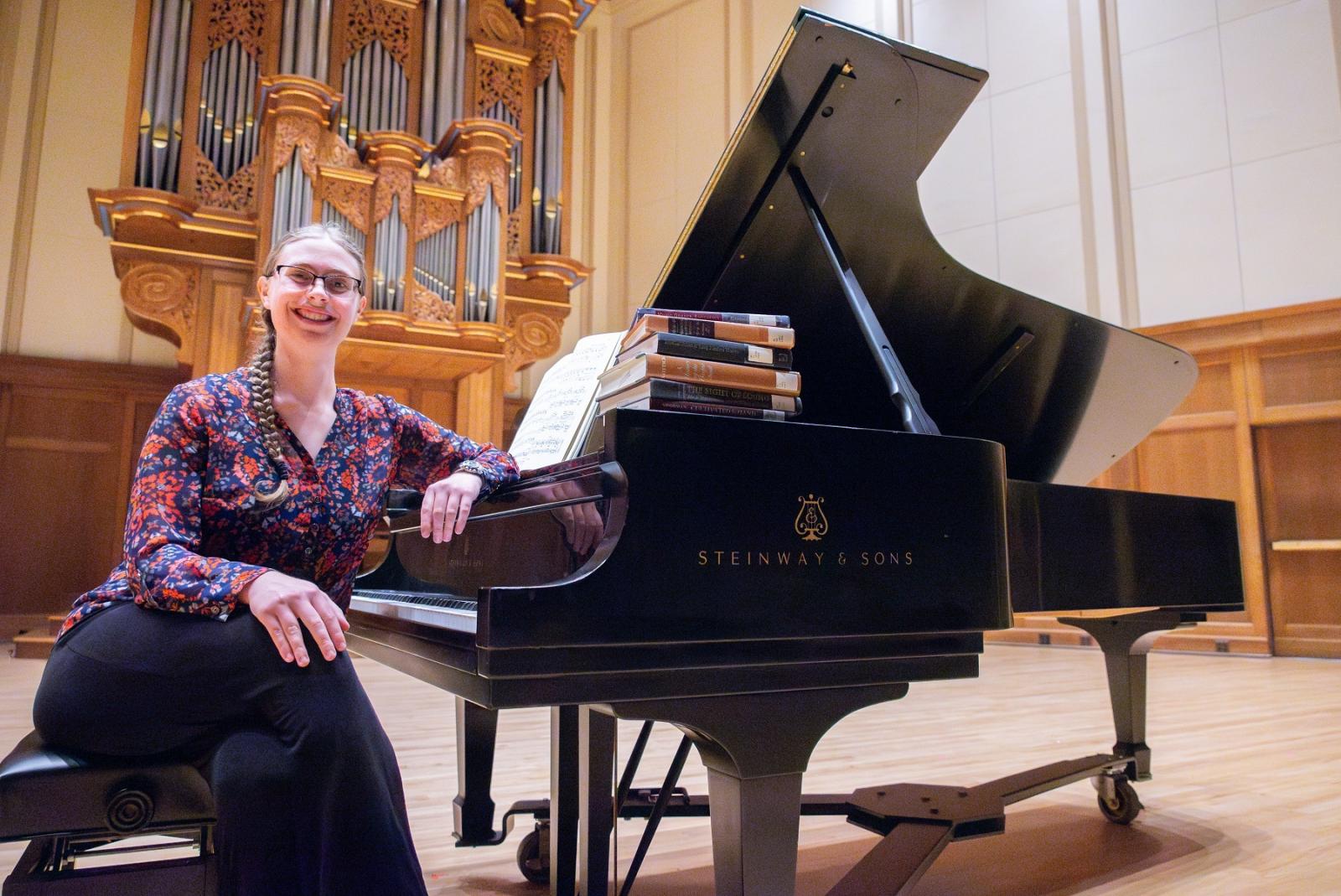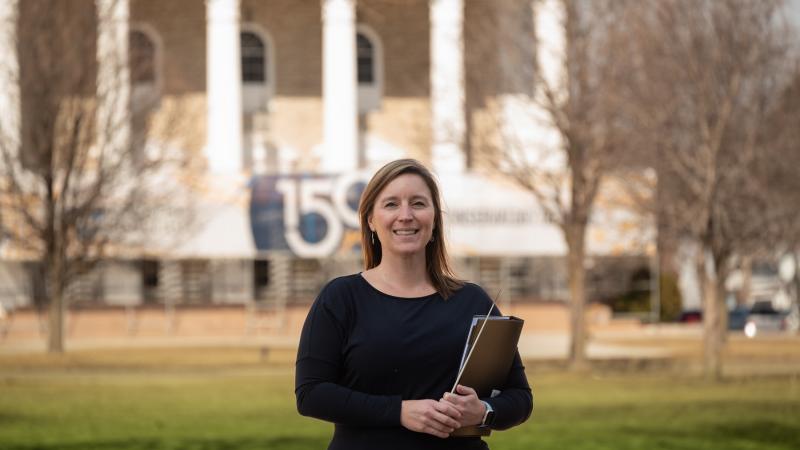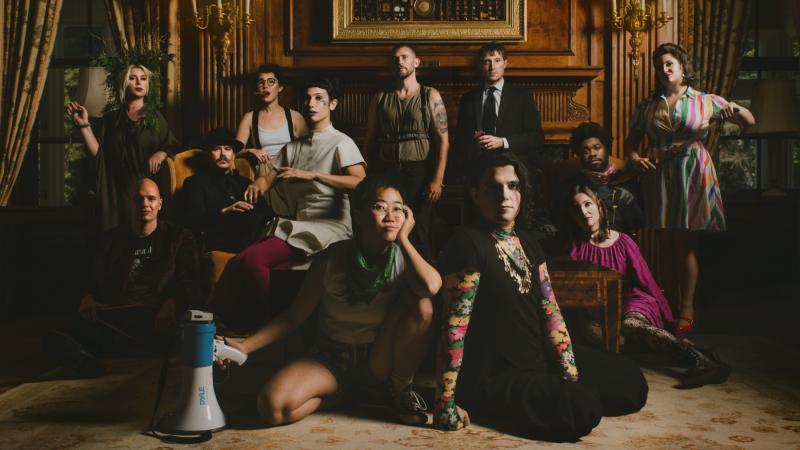Lawrence University senior Helen Panshin has approached musicology courses—a requirement for all Conservatory of Music students—with a particular zeal.
Panshin, seeking a Bachelor of Arts with majors in both music and English literature, credits the musicology faculty’s nuanced and evolving approach for inspiring her passion with specialized research and advocacy for marginalized voices in classical music.
“I know that there has been so much intentionality and thoughtfulness in crafting what our [musicology] curriculum is,” Panshin said. “I think it’s so valuable in its current state.”
That enthusiasm led Panshin, from Corvallis, Oregon, to a reconsidered junior recital and then a summer internship with New Muses Project, an initiative dedicated to bringing greater recognition to underrepresented composers.
For many decades, Lawrence’s musicology curriculum focused on a strict chronological survey of key Western composers and works. However, the program has shifted toward a global, topic-oriented approach—better fitting the wide variety of musicians who attend the university.
“Now musicology classes are more about conceptualizing music as part of society and [exploring] how we engage with music as a community,” Panshin said.
Integrate intellectual and musical virtuosity in a supportive community that will empower you to find your musical path.
This broadened perspective directly shaped Panshin’s own artistry and informed her junior recital, which she designed to reflect a more personal relationship with her repertoire.
“Originally, I had prepared a Chopin Scherzo and a Liszt Etude—these big, impressive, showy, canonic pieces—but I realized that doing that didn't sit right with me; it was not who I am as a musician,” she said.
Instead, Panshin sought to reimagine her program through the lens of her musicological studies.
“I had come across Hélène de Montgeroult’s Fantasy a year or so earlier and fell in love with it,” she explained. “I had been working on it for a while when I wondered, what else could I do with her music? She wrote a lot of surprisingly lovely pedagogical pieces, and I decided to use that as an opportunity to explore how she would have wanted me to learn her music—I ended up programming two of her etudes alongside the Fantasy.”
The recital began with “Song Without Words,” Op. 18, No. 2 by Delphine von Schauroth, a lesser-known Romantic composer and virtuoso pianist. Panshin carefully placed this piece alongside Montgeroult’s works, highlighting both composers’ shared focus on making the piano “sing.”
Panshin added: “I really wasn't coming from an angle of, ‘I’m going to do a recital of music by women.’” Instead, I asked, ‘How can I perform music that is meaningful to me and that I think can be valuable for other people to hear, that is not just aligning with canonic values and narratives?’”
After her recital, Panshin was eager to pursue additional avenues to further her research and the impact it could have on a broader audience.
In earlier research, she had come across the New Muses Project. She emailed organizers in the spring of her junior year, sharing her enthusiasm, which landed her the summer internship with the organization.
New Muses Project combines scholarship, performance, and education to promote composers of marginalized identities, past and present. A major component of the project is a website interface that allows visitors to enter the names of familiar composers and receive recommendations of underrepresented composers who wrote in similar musical styles.
“There are a lot of dimensions to New Muses,” Panshin said. “I think the work they do is really meaningful, and it's really aligned with what I care about, how I make music.”
Her responsibilities included researching biographical information, locating recordings, and scrutinizing manuscripts. Through this work, Panshin and her colleagues aimed to present composers authentically—neither reducing their stories to victimization nor elevating them to untouchable icons.
In addition to her continued work with New Muses, Panshin serves as the Conservatory’s musicology student representative on the Dean’s Advisory Council. She will present her senior recital at 8 p.m. April 28 (location tbd).
Looking to the future, she plans to attend graduate school in musicology, where she hopes to further her research and advocacy for marginalized voices in classical music.
“One of the crucial things for me is to emphasize that the work doesn't stop here; continuing to interrogate and reimagine accepted power structures and assumptions within the musical environments I participate in is a practice I'm committed to and that I hope to encourage in others through my work,” Panshin said.
Her journey illustrates how musicology can extend beyond an academic enclave—it can be a pathway to fostering representation, connection, and meaningful change in the world of classical music.



